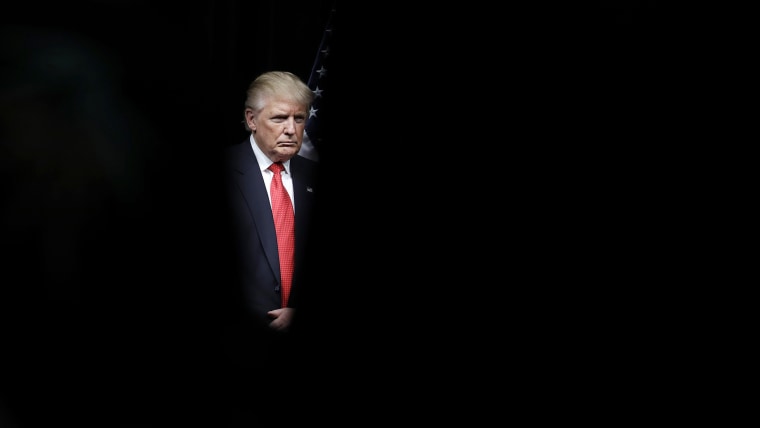The more Donald Trump faces questions about the legitimacy of his election, the more his allies and supporters are pushing a very specific talking point: If President Obama didn't face these questions, Trump shouldn't either.
Here, for example, was Reince Priebus, the incoming White House chief of staff, on ABC yesterday:
"You didn't have Republicans questioning whether or not Obama legitimately beat John McCain in 2008."
Two days earlier, Fox News' Dana Perino, the Bush/Cheney White House press secretary, said "
no one" argued that Barack Obama "was not a legitimate president." Over the weekend, CNN's Ben Ferguson, a conservative pundit,
added he "can't imagine the fallout ... if a Republican ever implied" that Obama was an illegitimate president. Ferguson added that such talk is "unprecedented."Do you ever get the feeling some of Donald Trump's allies occasionally forget about Donald Trump's existence? Or at a minimum, they've forgotten that his most notable contribution to the political discourse in recent years was his role
championing a racist conspiracy theory about the current president?"No one" argued that Obama "was not a legitimate president"? Well, one guy certainly did. Not only did Trump question Obama's legitimacy in the president's first term, Trump referred to Obama's re-election as "
a total sham." Around the same time, Trump
declared, "We can't let this happen. We should march on Washington and stop this travesty. Our nation is totally divided!"In context, Trump made this argument because he thought Obama had lost the popular vote. Obama actually won the popular vote with ease -- which is itself a detail that creates a wrinkle for Republicans since Trump did not.The result is a disconnect Republicans haven't even tried to resolve: Democrats are being asked to respect the process in order to honor an incoming president who's never respected the process. I'm honestly not sure what the GOP response would be if Democrats responded, "We promise to respect the system and the office every bit as much as Donald J. Trump did."The basic details are hard to ignore: Donald Trump received nearly 3 million fewer votes than his opponent, while being aided by a foreign adversary's espionage operation created in part to put Trump in power. Any president -- from either party -- who won under these circumstances would face questions about his or her legitimacy. It's an unavoidable byproduct of an election that appears to have been sullied by foreign influence.The
New York Times' Paul Krugman today
described asking the questions as "an act of patriotism."
By any reasonable standard, the 2016 election was deeply tainted. It wasn't just the effects of Russian intervention on Mr. Trump's behalf; Hillary Clinton would almost surely have won if the F.B.I. hadn't conveyed the false impression that it had damaging new information about her, just days before the vote. This was grotesque, delegitimizing malfeasance, especially in contrast with the agency's refusal to discuss the Russia connection.Was there even more to it? Did the Trump campaign actively coordinate with a foreign power? Did a cabal within the F.B.I. deliberately slow-walk investigations into that possibility? Are the lurid tales about adventures in Moscow true? We don't know, although Mr. Trump's creepy obsequiousness to Vladimir Putin makes it hard to dismiss these allegations. Even given what we do know, however, no previous U.S. president-elect has had less right to the title. So why shouldn't we question his legitimacy?
Trump and his team may come up with a perfectly good answer to that question, though they'll have to do better than arguing that Republicans never questioned Obama's legitimacy. Trump's record offers too much proof to the contrary.
Postscript: While a variety of Republicans, including Trump and Priebus, were outraged after Rep. John Lewis (D-Ga.)
questioned the legitimacy of Trump's presidency, let's not forget that Trump
himself questioned the legitimacy of the 2016 presidential election that put him in power.
